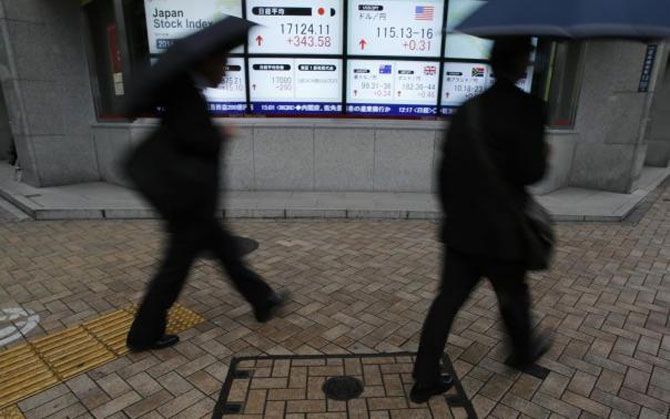The rise in US interest rates and associated change in the direction of capital flows, the fall in oil prices and the slowdown in China will dominate the markets, say Abheek Barua and Bidisha Ganguly
The year end is usually a quiet time for markets, as fund managers prepare for their annual vacations. This year proved to be different as equity markets came tumbling down on the back of the decline in oil prices and a sharp fall in the Russian rouble.
This round of volatility provides a taste of things to come. We see three themes that will dominate the markets in the coming year - the rise in US interest rates and the associated change in the direction of capital flows, the fall in oil prices and the slowdown in China.

On US interest rates, the Federal Reserve has just pronounced that it will take a "patient" approach in raising rates. Although unemployment is declining as the US economy recovers, inflation remains low and there is no urgent need to increase interest rates. However, after the financial crisis, financial stability has become an important consideration for central bankers.
They need to discourage excessive risk-taking that could result from an extended period of low interest rates. For the moment, equity investors are delighted that the Fed has painted a positive picture of the US economy and played down the impact of falling oil.
Balancing the tightening of the monetary policy in the US are the central banks in Europe and Japan that will continue to add liquidity. Yet, this may not be enough to offset the overall withdrawal of liquidity, especially when one considers the reduction in funds available with the oil producing countries that were earlier adding to capital flows.

As oil prices fall below their fiscal break-even points, it will add to the pressure to tap their sovereign wealth funds to finance domestic budgets rather than invest abroad. The balance of forces seems to support the prevalence of a risk-off environment, resulting in weakness in oil, gold and other commodities.
How emerging markets as a basket will perform is difficult to say and one hopes that individual countries will be treated separately by the markets rather than as a group. Here, China's performance becomes critical in determining whether emerging markets as a whole will take a hit. While slower growth in China is widely expected, what is not known is whether the financial sector will buckle under the pressure of poor asset quality.

What makes it more difficult to assess is the lack of transparency in the financial system. For example, while the ratio of non-performing loans of major banks is officially stated as 1.08 per cent, some analysts say that in reality that ratio could be in double digits.
Risks to a soft landing in China emanate from various sources, including a large default in the shadow banking sector, further decline in property prices and a shutdown of export oriented factories. While the consensus view is that China will grow at no less than seven per cent in 2015, some China watchers have talked about a possible property-led hard landing, in which case the economy could slow down to about five to six per cent.
The Chinese leadership would also be concerned about the medium-term prospects for the country. The Conference Board forecasts that China's annual growth will slow to an average rate of 5.5 per cent between 2015 and 2019, compared with 7.7 per cent last year, and drop further to an average rate of 3.9 per cent between 2020 and 2025.
Abheek Barua is with ICRIER. Bidisha Ganguly is Principal Economist, CII



.jpg)







